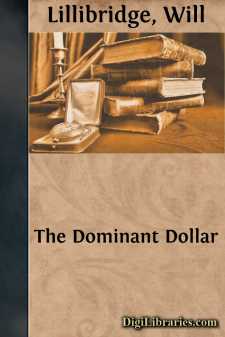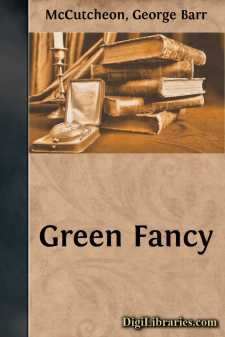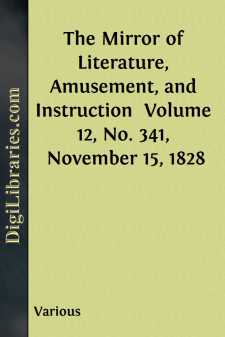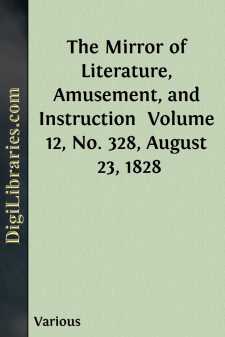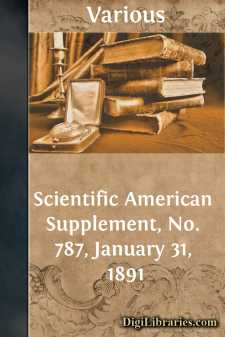Categories
- Antiques & Collectibles 13
- Architecture 36
- Art 48
- Bibles 22
- Biography & Autobiography 813
- Body, Mind & Spirit 142
- Business & Economics 28
- Children's Books 17
- Children's Fiction 14
- Computers 4
- Cooking 94
- Crafts & Hobbies 4
- Drama 346
- Education 46
- Family & Relationships 57
- Fiction 11829
- Games 19
- Gardening 17
- Health & Fitness 34
- History 1377
- House & Home 1
- Humor 147
- Juvenile Fiction 1873
- Juvenile Nonfiction 202
- Language Arts & Disciplines 88
- Law 16
- Literary Collections 686
- Literary Criticism 179
- Mathematics 13
- Medical 41
- Music 40
- Nature 179
- Non-Classifiable 1768
- Performing Arts 7
- Periodicals 1453
- Philosophy 64
- Photography 2
- Poetry 896
- Political Science 203
- Psychology 42
- Reference 154
- Religion 513
- Science 126
- Self-Help 84
- Social Science 81
- Sports & Recreation 34
- Study Aids 3
- Technology & Engineering 59
- Transportation 23
- Travel 463
- True Crime 29
Sort by:
by:
Will Lillibridge
CHAPTER I A PROPHECY “You’re cold-blooded as a fish, Roberts, colder. You’re—There is no adequate simile.” The man addressed said nothing. “You degrade every consideration in life, emotional and other, to a dollar-and-cents basis. Sentiment, ambition, common judgment of right and wrong, all gravitate to the same level. You have a single standard of measurement that you apply to all alike,...
more...
CHAPTER I THE FIRST WAYFARER AND THE SECOND WAYFARER MEET AND PART ON THE HIGHWAY A solitary figure trudged along the narrow road that wound its serpentinous way through the dismal, forbidding depths of the forest: a man who, though weary and footsore, lagged not in his swift, resolute advance. Night was coming on, and with it the no uncertain prospects of storm. Through the foliage that overhung the...
more...
by:
George Bell
THE EYE: ITS PRIMARY IDEA. I do not remember to have remarked that any writer notices how uniformly, in almost all languages, the same primary idea has been attached to the eye. This universal consent is the more remarkable, inasmuch as the connexion in question, though of course most appropriate and significant in itself, hardly seems to indicate the most prominent characteristic, or what we should...
more...
CHAPTER I. WHAT A LETTER FROM A TRAMP STEAMER DID. "I say, what's gone wrong now, Maurice, old fel?" The speaker, a roughly clad boy of about fifteen or over, caught hold of his companion's sleeve and looked sympathetically in his face. The lad whom he called Maurice was better dressed, and he seemed to carry with him a certain air of refinement that was lacking in his friend, who was...
more...
THE RIDERS. I dare say ’tis a wild, foolish, dangerous thing; but I do it, nevertheless! As for my reasons, they are the strongest. First, I wish to do it. Second, you’ve all opposed my doing it. So there’s an end of the matter!” It was, of course, a woman that spoke,—moreover, a young one. And she added: “Drat the wind! Can’t we ride faster? ’Twill be dark before we reach the...
more...
by:
William Cowper
INTRODUCTION. After the publication of his "Table Talk" and other poems in March, 1782, William Cowper, in his quiet retirement at Olney, under Mrs. Unwin's care, found a new friend in Lady Austen. She was a baronet's widow who had a sister married to a clergyman near Olney, with whom Cowper was slightly acquainted. In the summer of 1781, when his first volume was being printed,...
more...
by:
Various
TEMPLE AT ABURY. Sermons in stones And good in every thing.—SHAKSPEARE. What means the mysterious circle of stocks and stones on the other side? Such will be the question of many a lover of fun, novel, fiction, and romance; and though we cannot settle their origin with the quickness or the humour of Munden's Cockletop, we will try to let our inquirer into the secret with the smallest show of...
more...
by:
John Richardson
CHAPTER I. “He has come to ope the purple testament of war.” —Richard II It was the 7th of August, 1812, when Winnebeg, the confidential Indian messenger of Captain Headley, commanding Fort Dearborn, suddenly made his appearance within the stockade. With a countenance on which was depicted more of the seriousness and concern than usually attach to his race, he requested the officer of the guard,...
more...
by:
Various
ANCIENT PLAN OF OXFORD CASTLE. By these mysterious ties the busy pow'r Of mem'ry her ideal train preserves Intire; or, when they would elude her watch, Reclaims their fleeting footsteps from the waste Of dark oblivion. AKENSIDE Gentle, courteous, and patient reader—to understand the above plan, it is requisite that you carry your mind's eye back to those troublous times when men...
more...
by:
Various
STEAM ENGINE VALVES. By THOMAS HAWLEY. In considering the slide valve in its simple form with or without lap, we find there are certain limitations to its use as a valve that would give the best results. The limitation of most importance is that its construction will not allow of the proper cut off to obtain all the benefits of expansion without hindering the perfect action of the valve in other...
more...


